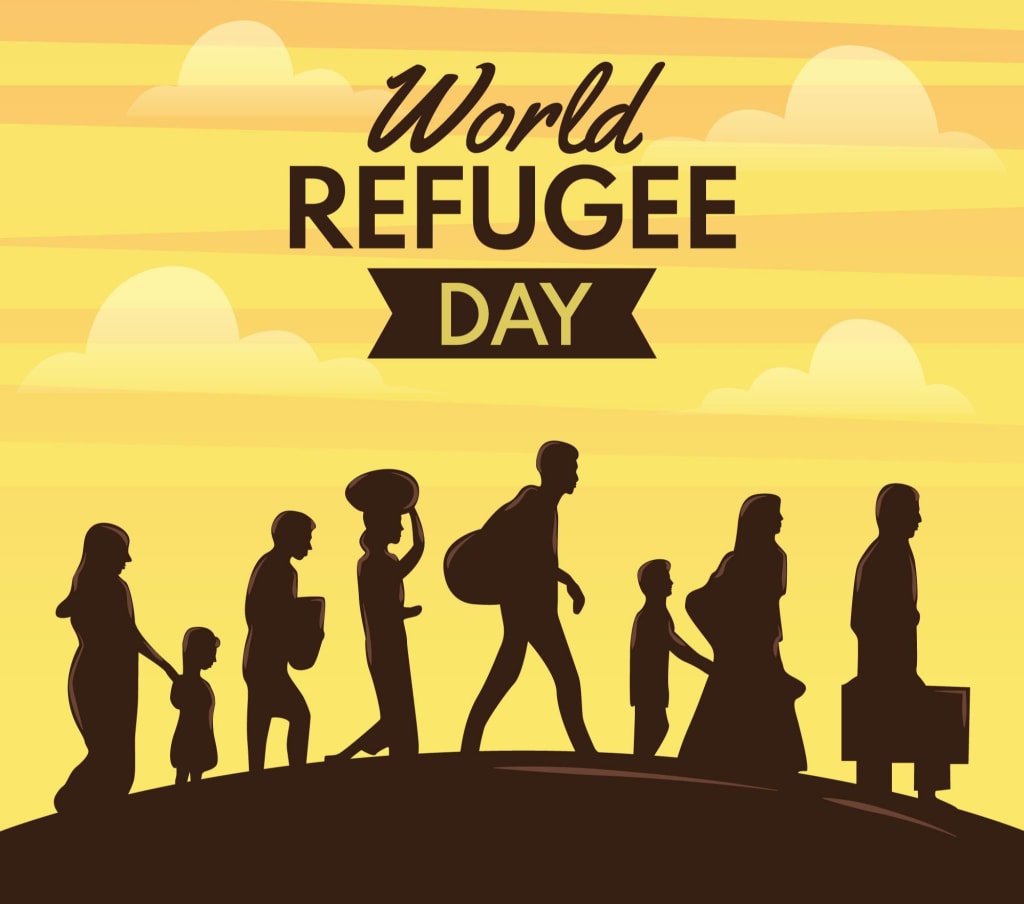The World Refugee Day
A Global Call For Solidarity and Compassion

Title: World Refugee Day: A Global Call for Solidarity and Compassion
Introduction:
Every year, on June 20th, the world comes together to observe World Refugee Day. This important day serves as a reminder of the countless individuals and families who have been forcibly displaced from their homes due to conflict, persecution, or violence. It is an occasion to honor their resilience, strength, and the enduring human spirit. On this day, we celebrate their courage and renew our commitment to providing protection, support, and hope to those who have been uprooted from their lives. In this article, we will explore the various types of refugees and shed light on their diverse backgrounds and stories.
1. Refugee Definition:
To better understand the term "refugee," it is crucial to highlight the legal definition established by the 1951 Refugee Convention and its 1967 Protocol. According to this international law, a refugee is someone who has fled their country of origin due to well-founded fear of persecution based on their race, religion, nationality, political opinion, or membership in a particular social group. They have crossed an international border and are unable or unwilling to return due to the risk of harm.
2. Conflict and War Refugees:
One of the most well-known types of refugees are those displaced by conflict and war. These individuals have been forced to leave their homes due to armed conflicts, civil wars, or political instability. Examples include the millions of Syrians fleeing the Syrian Civil War or the Rohingya people escaping violence in Myanmar. Conflict and war refugees often face significant challenges, including violence, lack of access to basic necessities, and an uncertain future.
3. Environmental Refugees:
With the growing impact of climate change, a new type of refugee has emerged – environmental refugees. These individuals are displaced due to environmental disasters, including hurricanes, floods, droughts, or rising sea levels. Pacific Island nations such as Kiribati and Tuvalu, which are facing the threat of sinking, are at the forefront of this crisis. Additionally, people from regions affected by desertification, deforestation, or other ecological changes are also included in this category.
4. Economic Refugees:
Economic refugees are individuals who are compelled to leave their home countries in search of better economic opportunities and improved living conditions. They often migrate to more prosperous countries in the hope of securing employment, education, or a higher standard of living. These refugees typically come from developing nations where poverty, unemployment, and lack of opportunities are prevalent. They may face challenges such as exploitation, discrimination, and limited access to social services.
5. Gender-Based Refugees:
Gender-based refugees include individuals who have fled their homes due to gender-specific persecution, such as violence, discrimination, or gender-based violence. Women and girls facing forced marriages, domestic abuse, human trafficking, or female genital mutilation are among this vulnerable group. LGBTQ+ individuals escaping persecution based on their sexual orientation or gender identity also fall into this category.
6. Religious and Ethnic Refugees:
Religious and ethnic refugees are those who have been targeted due to their religious beliefs or ethnic background. They face persecution, discrimination, and violence in their home countries, which compels them to seek safety elsewhere. Examples include the Rohingya Muslims facing persecution in Myanmar, religious minorities targeted in Iraq and Syria, or ethnic groups subjected to violence in various parts of Africa.
Conclusion:
On World Refugee Day, it is essential to acknowledge and honor the experiences of refugees from diverse backgrounds. Each individual's journey is unique, shaped by a combination of factors such as conflict, persecution, environmental challenges, economic disparities, and discrimination. By recognizing the various types of refugees, we can foster a greater understanding and empathy for their plight. It is our collective responsibility to provide support, protection, and opportunities for refugees, ensuring their dignity and enabling them
About the Creator
Enjoyed the story? Support the Creator.
Subscribe for free to receive all their stories in your feed. You could also pledge your support or give them a one-off tip, letting them know you appreciate their work.





Comments
There are no comments for this story
Be the first to respond and start the conversation.